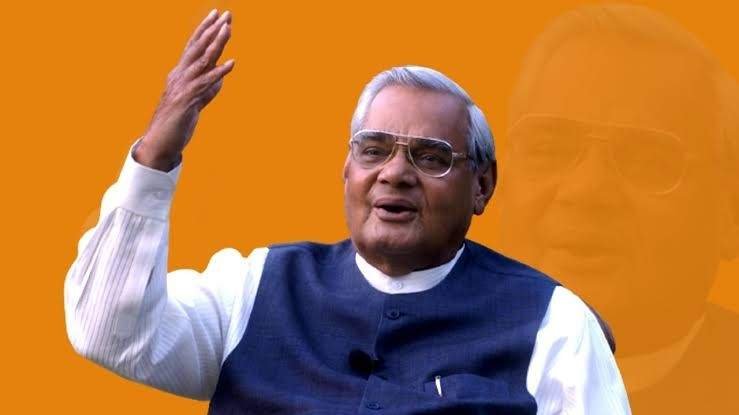Atal Bihari Vajpayee, an eminent figure in Indian politics, served as the Prime Minister of India three times, with his most notable tenure from 1998 to 2004. His leadership marked a significant turning point in India’s foreign policy, characterized by a blend of realism and idealism. Vajpayee’s contributions to India’s foreign policy, focusing on key events and strategies that shaped India’s position on the global stage.
The Nuclear Tests of 1998:
A Bold Assertion of Sovereignty
Context of the Tests: In May 1998, India conducted a series of nuclear tests in Pokhran, which were a culmination of years of strategic planning. This move was primarily motivated by the need to secure India’s national interests in a volatile regional environment, particularly in light of threats from neighboring countries, Pakistan and China.
International Reaction: The tests initially drew widespread condemnation and sanctions from the international community, particularly from the United States. However, Vajpayee’s government maintained that the tests were essential for national security and a demonstration of India’s technological capabilities.
Long-term Impact: The nuclear tests positioned India as a nuclear power, altering the geopolitical landscape of South Asia. Vajpayee’s commitment to a “No First Use” policy and a moratorium on further tests helped stabilize regional tensions and established India as a responsible nuclear state.
The Kargil War: A Test of Resolve and Diplomacy
Background of the Conflict: The Kargil War in 1999 was sparked by the infiltration of Pakistani soldiers and militants into Indian territory. Vajpayee’s leadership during this conflict showcased his strategic acumen and commitment to national integrity.
Military Strategy: Vajpayee’s decision to mobilize the Indian Armed Forces while maintaining restraint by not crossing the Line of Control (LoC) was pivotal. This approach not only demonstrated India’s military resolve but also prevented the escalation of the conflict into a full-scale war.
Diplomatic Maneuvering: Throughout the conflict, Vajpayee engaged with international leaders, particularly the United States, to garner support for India’s position. His diplomatic efforts were instrumental in isolating Pakistan on the global stage and securing a favorable outcome for India.
Strengthening Ties with the United States
Post-Kargil Relations: Following the Kargil War, Vajpayee recognized the importance of strengthening ties with the United States. His government initiated a series of back-channel dialogues, which laid the groundwork for a strategic partnership.
The 2000 Visit to the U.S.: Vajpayee’s visit to the United States in 2000 marked a significant milestone in Indo-U.S. relations. He was the first Indian Prime Minister to address a joint session of the U.S. Congress, emphasizing India’s commitment to democracy and economic reform.
Long-term Strategic Partnership: The relationship established during Vajpayee’s tenure set the stage for future collaborations in defense, technology, and trade, culminating in the landmark U.S.-India Civil Nuclear Agreement in 2005.
Engaging with Neighbors: The Look East Policy
Focus on Regional Diplomacy: Vajpayee’s foreign policy was not limited to the West; he also emphasized the importance of engaging with India’s neighbors and the broader Asia-Pacific region. His “Look East” policy aimed to strengthen ties with Southeast Asian nations.
Bilateral Relations with China: Despite historical tensions, Vajpayee made significant strides in improving relations with China. His visit to China in 2003 and the establishment of the Special Representatives mechanism for border talks were crucial steps in fostering cooperation.
Indo-Pak Relations: Vajpayee’s approach to Pakistan was characterized by a dual strategy of engagement and firmness. The Lahore Declaration in 1999 aimed to promote peace and cooperation, although it was soon overshadowed by the Kargil conflict. Nevertheless, Vajpayee’s willingness to engage in dialogue set a precedent for future leaders.
The Role of Economic Diplomacy
Economic Reforms and Foreign Policy: Vajpayee’s government recognized the interlinkage between economic growth and foreign policy. His administration implemented significant economic reforms that enhanced India’s attractiveness as a global partner.
“Only India herself can free her citizens from the scourge of poverty and hunger.
That can only happen if we the youth, go back to the grassroots.”- Vajpayee
Investment in Infrastructure: The Golden Quadrilateral project, aimed at improving India’s infrastructure, was a cornerstone of Vajpayee’s economic agenda. This initiative not only boosted domestic growth but also positioned India as a viable destination for foreign investment.
Global Economic Engagement: Under Vajpayee, India actively participated in global economic forums, including the World Trade Organization (WTO), advocating for fair trade practices and greater integration into the global economy.
Legacy and Impact on Future Generations
A Pragmatic Approach: Vajpayee’s foreign policy legacy is characterized by a pragmatic approach that balanced national interests with global responsibilities. His ability to navigate complex geopolitical landscapes has influenced subsequent administrations.
Foundation for Future Leaders: The principles established during Vajpayee’s tenure continue to guide India’s foreign policy. His emphasis on dialogue, strategic partnerships, and economic diplomacy remains relevant in addressing contemporary challenges.
Recognition as a Statesman: Vajpayee is remembered not only for his political acumen but also for his oratory skills and vision for a strong, self-reliant India. His contributions to foreign policy have earned him a place among India’s most respected leaders.
Essence:
Atal Bihari Vajpayee’s tenure as Prime Minister was marked by significant advancements in India’s foreign policy, characterized by a blend of realism and idealism. His strategic decisions, particularly regarding nuclear policy, regional diplomacy, and economic engagement, have left an indelible mark on India’s position in the world. As India continues to navigate the complexities of global politics, Vajpayee’s legacy serves as a guiding light for future leaders, emphasizing the importance of diplomacy, dialogue, and a commitment to national interests.








